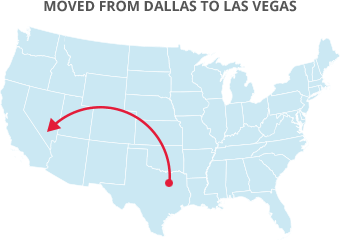

By Julie DeLong, A-1 Freeman Moving Group
 Moving soon? You are not alone--last year over 3 million Americans crossed a state line to a new residence. Some of those moves were across the country and others may have been across the city, but all of those families had to uproot all of their possessions, load it onto a truck, and hope for the best. If you're contemplating a move, there's no question you have been researching moving companies and have gone down the path of horrible move stories on review sites. How do you handle your residential move so that you're not duped by moving fraud, and that your possessions arrive at your new house in Colorado Springs safe and intact?
Moving soon? You are not alone--last year over 3 million Americans crossed a state line to a new residence. Some of those moves were across the country and others may have been across the city, but all of those families had to uproot all of their possessions, load it onto a truck, and hope for the best. If you're contemplating a move, there's no question you have been researching moving companies and have gone down the path of horrible move stories on review sites. How do you handle your residential move so that you're not duped by moving fraud, and that your possessions arrive at your new house in Colorado Springs safe and intact?The first thing to do is to learn the vernacular of the trucking industry. It's a lot easier to make sound decisions if you understand the language of the business and the various business models of moving companies. This glossary of terms, found on the Federal Motor Carrier Safety Administration website, aids you to familiarize yourself with Mover-talk so that when you hear phrases like storage-in-transit, valuation and released value, you will comprehend what they refer to.
The FMCSA website is a good commencing point in general, as it also spells out the guidelines, if you will, that motor carriers abide by. Any carrier you are considering should be registered with the US Department of Transportation, and carry a Motor Carrier and DOT number. You can search any complaints against a company on that site. The ones on Yelp and Google are more amusing, but any issues filed with the DOT tend to have a higher level of legitimacy than issues that are most likely the result of the customer just not paying attention.
In an ideal world, you'd find movers a couple of months beforehand, and unhastily pack, take care of the family, and be totally on the ball when the movers show up. Real life isn't so tidy, and that is what moving scammers bank on when they're promising you the moon—you're sidetracked and worrying about a thousand things, so they appeal to your sense of urgency—here is a rough estimate and a handshake and we'll deal with the paperwork later. This is a surefire way to never see your stuff again, unless you want to buy it back on Craigslist.
Instead, ask your realtor for a name of a moving company. Or, if you know anyone who has moved not too long ago, ask them if they would recommend their mover. National moving companies usually have agents all over the country, so you can ask your cousin in Oklahoma who they used, even if you live in Vermont. Use the FMCSA website to search companies registered for interstate moves, and Google them. Once you have narrowed it down to a couple choices, schedule a time to get written in-home estimates.
Be sure to look at the FMCSA publication, "Your Rights and Responsibilities When You Move". When hiring a professional mover, it's a federal law that you are given this 25-page booklet (or a link to it) that outlines your rights, protection, and industry regulations.
It is vital that you spot a rogue mover BEFORE they load your possessions. Don’t forget, not all movers have your best interest in mind. So, keep these RED FLAGS closeby as you are talking to your potential mover.
Be wary of movers who:
It's better to be safe than sorry. So, make sure and validate your moving company before they load your belongings onto their truck! Remember that if it seems too good to be true it probably is, and since you're trusting these people with what's effectively your life, do your investigation and pick a reputable moving company, like A-1 Freeman Moving Group, who will take good care of you when you move to Colorado Springs.

